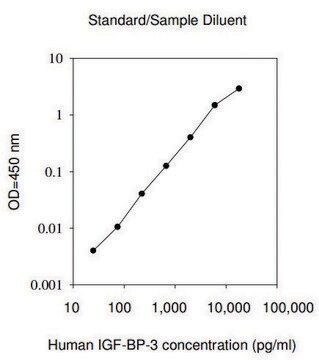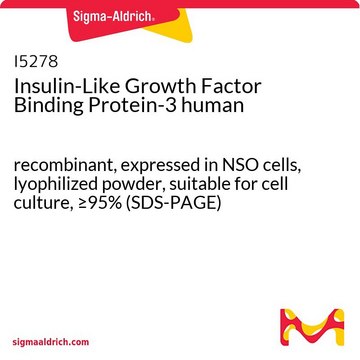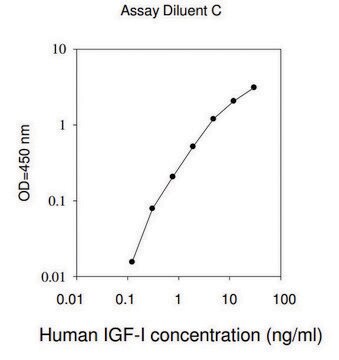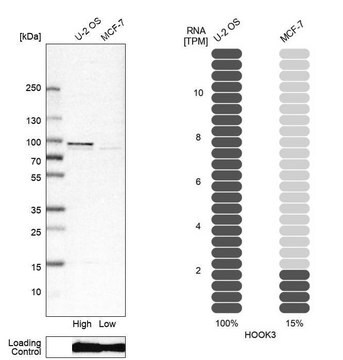SRP3067
IGF-Binding Protein-3 human
recombinant, expressed in E. coli, ≥98% (SDS-PAGE), ≥98% (HPLC), suitable for cell culture
Synonym(s):
Growth-hormone-dependant binding protein, IBP-3
About This Item
Recommended Products
biological source
human
recombinant
expressed in E. coli
Assay
≥98% (HPLC)
≥98% (SDS-PAGE)
form
lyophilized
potency
≤0.2 μg/mL
mol wt
28.8 kDa
packaging
pkg of 25 μg
technique(s)
cell culture | mammalian: suitable
impurities
<0.1 EU/μg endotoxin, tested
color
white to off-white
suitability
suitable for molecular biology
UniProt accession no.
shipped in
wet ice
storage temp.
−20°C
Gene Information
human ... IGFBP3(3486)
General description
IGFBPs (insulin-like growth factor-binding proteins) are mainly required to regulate IGFs (insulin like growth factors) activities. IGFBP3 is a multifunctional protein and is secreted by various cells. It is most ample circulating IGFBP and works in IGF-dependent and -independent mechanisms. The IGFBP3 gene is mapped to human chromosome 7p12.3.
Recombinant human IGF-BP3 is a 28.8kDa protein consisting of 264 amino acid residues.
Application
Biochem/physiol Actions
Sequence
Physical form
Reconstitution
Storage Class Code
11 - Combustible Solids
WGK
WGK 3
Flash Point(F)
Not applicable
Flash Point(C)
Not applicable
Certificates of Analysis (COA)
Search for Certificates of Analysis (COA) by entering the products Lot/Batch Number. Lot and Batch Numbers can be found on a product’s label following the words ‘Lot’ or ‘Batch’.
Already Own This Product?
Find documentation for the products that you have recently purchased in the Document Library.
Our team of scientists has experience in all areas of research including Life Science, Material Science, Chemical Synthesis, Chromatography, Analytical and many others.
Contact Technical Service








